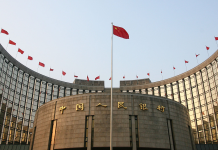BEIJING: Hundreds of years ago, as the setting sun cast a golden glow upon the Great Wall, a group of soldiers found a welcome diversion from the pressures of military duty in a chess-like board game. Lacking a playing board, they carved one on stone.
The soldiers navigated the board with the same precision they employed on the battlefield, calculating their options and contemplating the consequences of each decision. The clang of swords and the cries of fallen comrades were replaced by the gentle click of pieces on the game board in the evening light.
As the sun dipped below the horizon, casting long shadows across the wall, they finished their game and retreated to their posts, their minds strategically sharpened and ready to face the trials that awaited them.
A scene like this might have played out during the Ming Dynasty (1368-1644), as centuries later, Chinese archaeologists have discovered what appears to be a sort of chessboard carved on a block of stone in the Jiankou section of the Great Wall in Beijing’s Huairou district. The find sheds light on what soldiers might have done during their leisure time. The game board, carved on a paving stone at watchtower No 141, was discovered last year and recently made public.
“We are not sure which variant of chess it is. There were two popular board games in the Ming Dynasty — Go and Chinese chess,” said Shang Heng, associate researcher at the Beijing Archaeological Research Institute. Previously, Shang had found another game board at watchtower No 145 in the Jiankou section. But that board, with a square in the middle, is different from the one found last year.
The recent discovery adds another layer to the cultural significance of the Great Wall. It not only enriches the understanding of ancient Chinese culture, but also gives the formidable structure a human angle.
“Historical documents tend to record institutional content. The archaeological excavation essentially serves as a supplement that fills in the gaps in our understanding of the Great Wall,” Shang said. According to Shang, the border region was essentially a small-scale society. Apart from patrolling and fighting, soldiers lived their lives as ordinary people. –The Daily Mail-China Daily news exchange item






